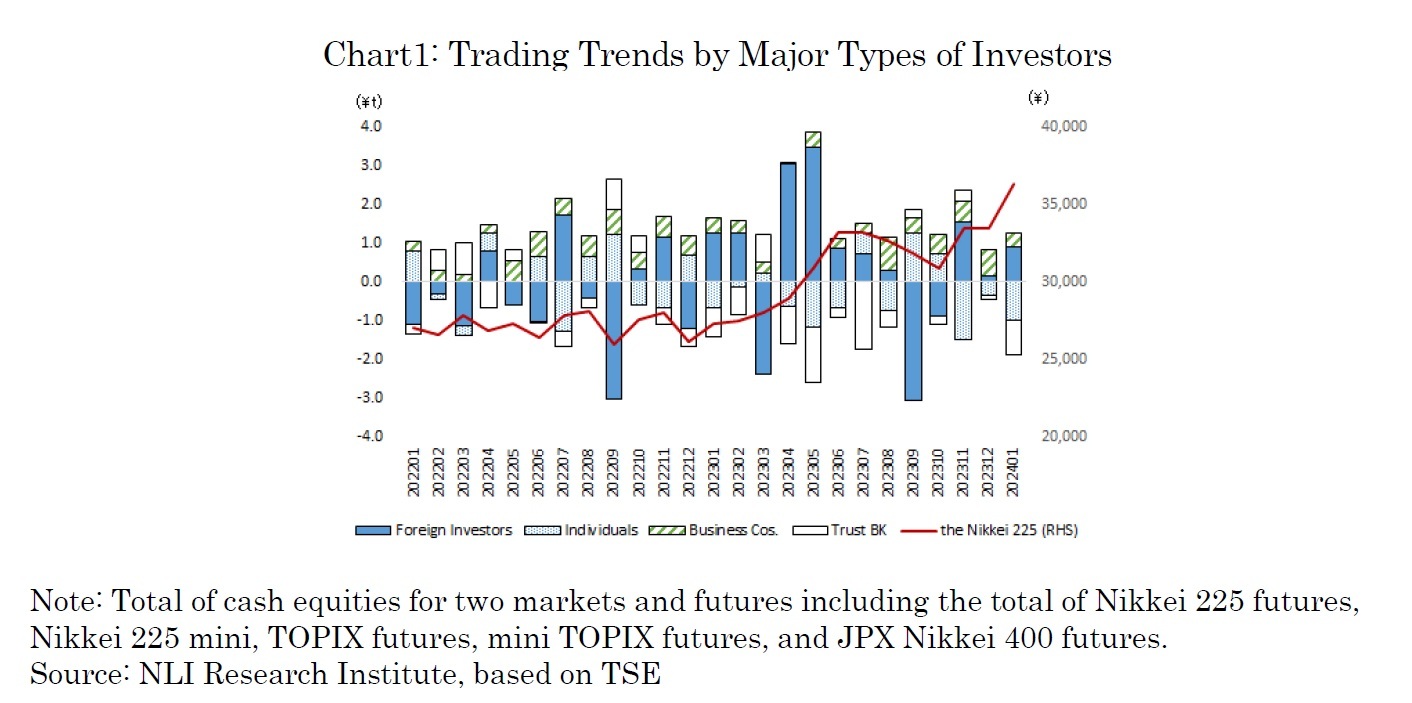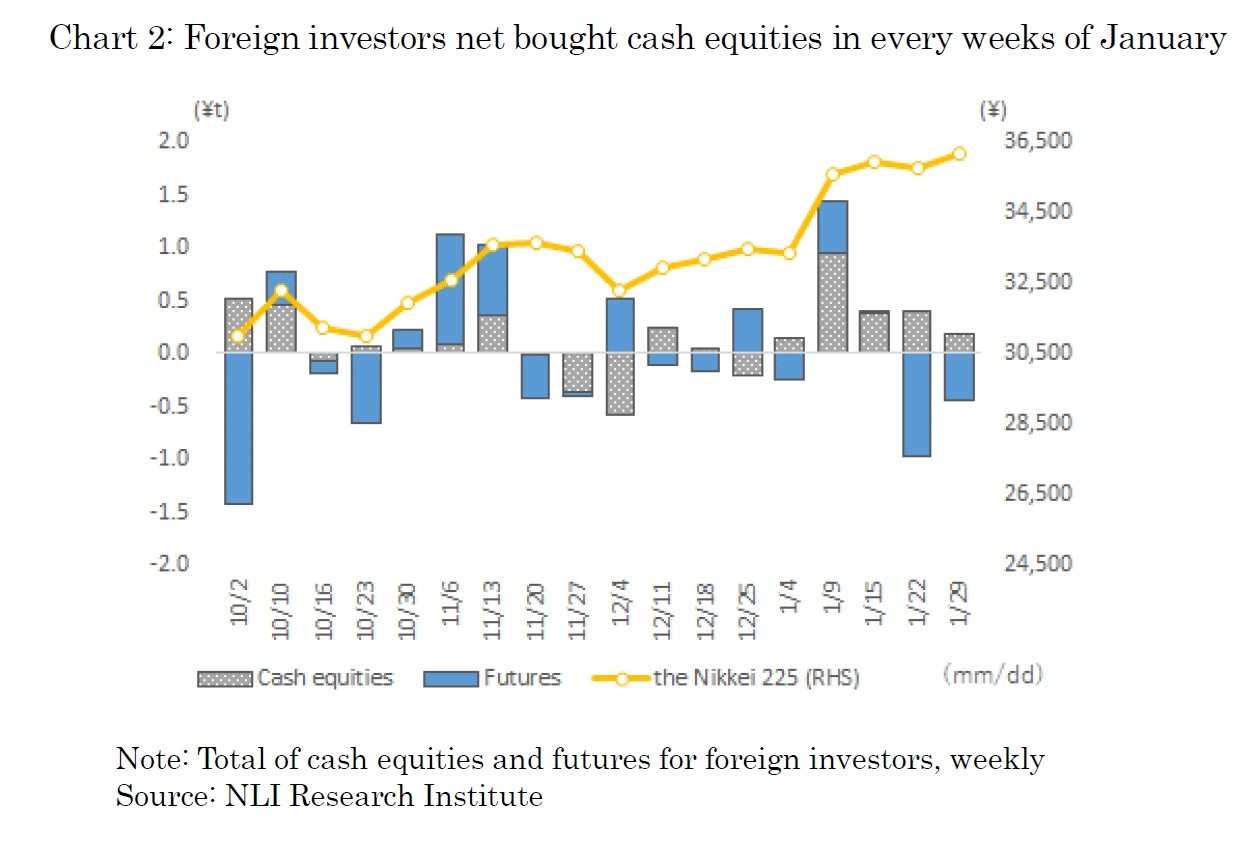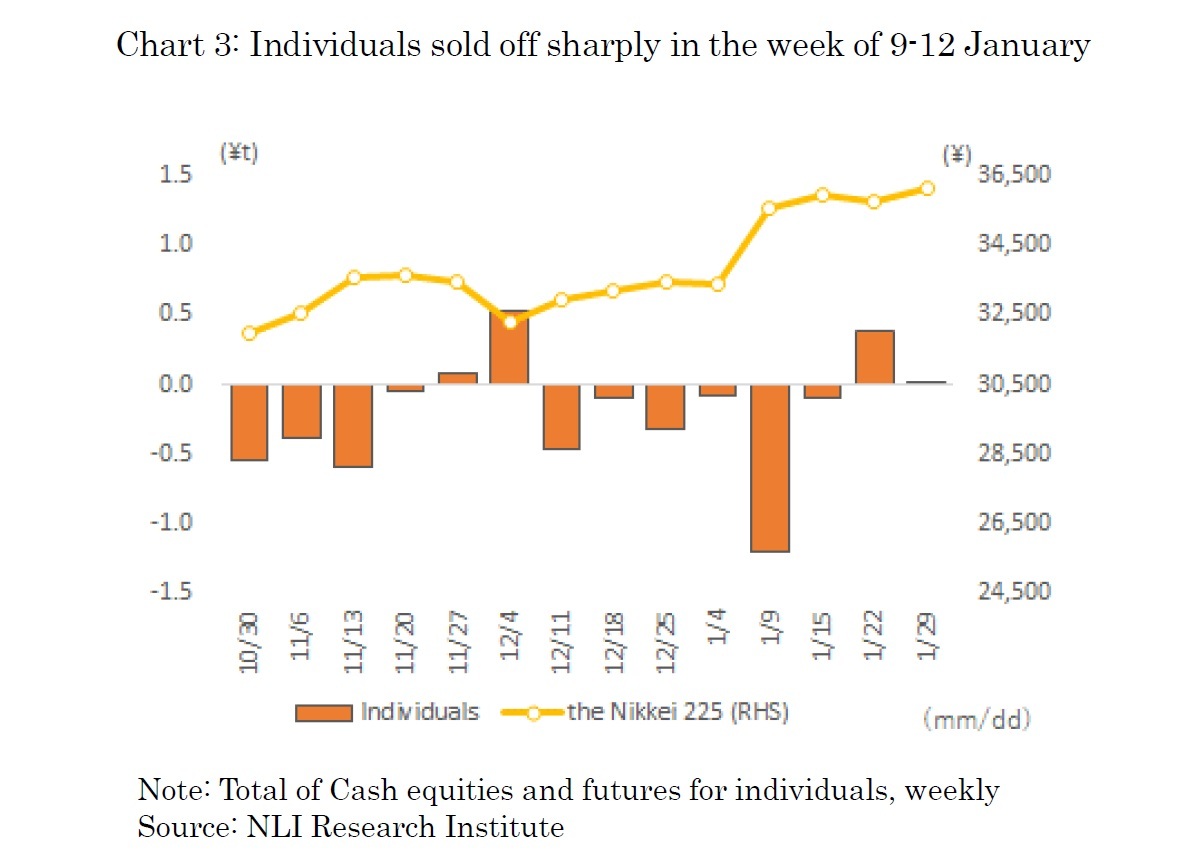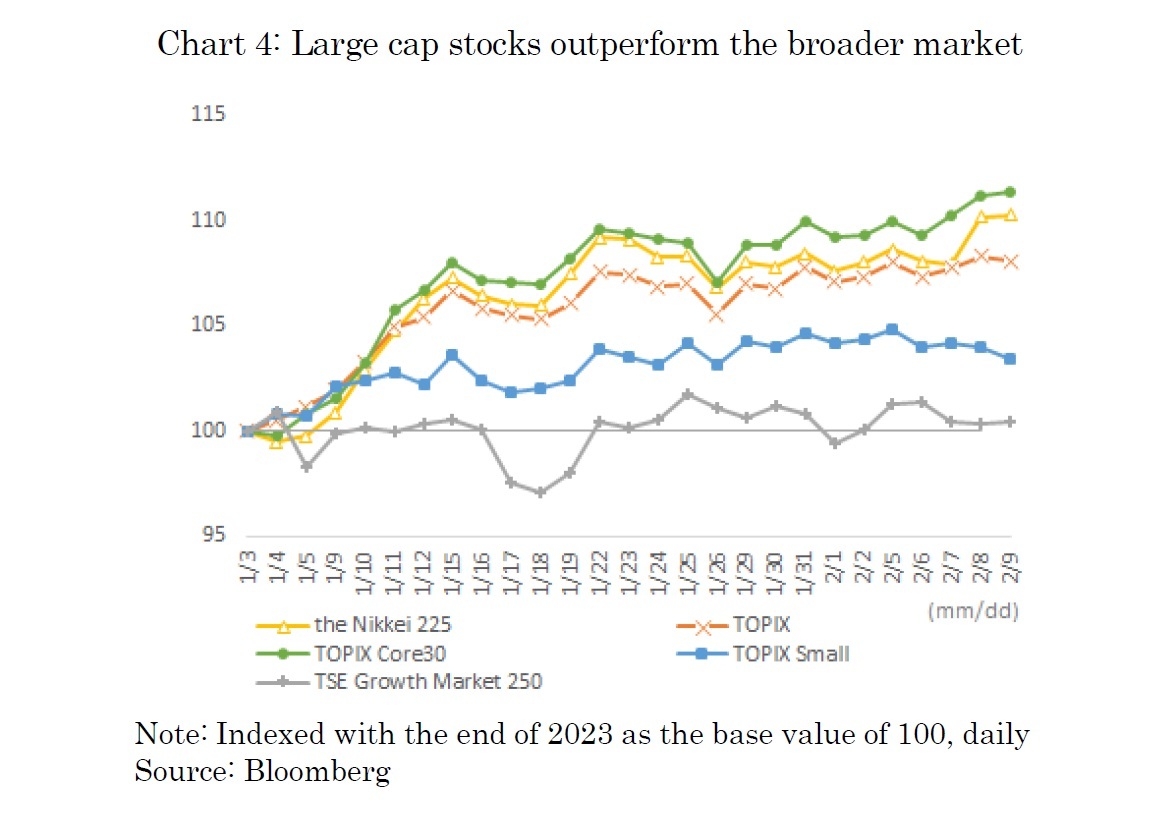- シンクタンクならニッセイ基礎研究所 >
- 資産運用・資産形成 >
- 株式 >
- Investors Trading Trends in Japanese Stock Market: An Analysis for January 2024
Investors Trading Trends in Japanese Stock Market: An Analysis for January 2024

金融研究部 研究員 森下 千鶴
文字サイズ
- 小
- 中
- 大
Please note: The data contained in this report has been obtained and processed from various sources, and its accuracy or safety cannot be guaranteed. The purpose of this publication is to provide information, and the opinions and forecasts contained herein do not solicit the conclusion or termination of any contract.
(2024年02月14日「研究員の眼」)

03-3512-1855
- 【職歴】
2006年 資産運用会社にトレーダーとして入社
2015年 ニッセイ基礎研究所入社
2020年4月より現職
【加入団体等】
・日本証券アナリスト協会検定会員
・早稲田大学大学院経営管理研究科修了(MBA、ファイナンス専修)
森下 千鶴のレポート
| 日付 | タイトル | 執筆者 | 媒体 |
|---|---|---|---|
| 2025/10/08 | Investors Trading Trends in Japanese Stock Market:An Analysis for September 2025 | 森下 千鶴 | 研究員の眼 |
| 2025/10/07 | 投資部門別売買動向(25年9月)~事業法人は52カ月連続買い越し~ | 森下 千鶴 | 研究員の眼 |
| 2025/10/03 | 進む東証改革、なお残る上場維持基準の課題 | 森下 千鶴 | ニッセイ年金ストラテジー |
| 2025/09/09 | Investors Trading Trends in Japanese Stock Market:An Analysis for August 2025 | 森下 千鶴 | 研究員の眼 |
新着記事
-
2025年10月14日
厚生年金の加入制限が段階的に廃止へ。適用徹底には連携強化が課題。~年金改革ウォッチ 2025年10月号 -
2025年10月14日
貸出・マネタリー統計(25年9月)~銀行貸出の伸びが4年半ぶりの4%台に、定期預金等はバブル期以来の高い伸びを記録 -
2025年10月14日
中国の貿易統計(25年9月)~輸出、輸入とも加速。対米輸出は減少が続く -
2025年10月14日
ロシアの物価状況(25年9月)-低下が続くが、足もとインフレ圧力の強まりも -
2025年10月14日
今週のレポート・コラムまとめ【10/7-10/10発行分】
レポート紹介
-
研究領域
-
経済
-
金融・為替
-
資産運用・資産形成
-
年金
-
社会保障制度
-
保険
-
不動産
-
経営・ビジネス
-
暮らし
-
ジェロントロジー(高齢社会総合研究)
-
医療・介護・健康・ヘルスケア
-
政策提言
-
-
注目テーマ・キーワード
-
統計・指標・重要イベント
-
媒体
- アクセスランキング
お知らせ
-
2025年07月01日
News Release
-
2025年06月06日
News Release
-
2025年04月02日
News Release
【Investors Trading Trends in Japanese Stock Market: An Analysis for January 2024】【シンクタンク】ニッセイ基礎研究所は、保険・年金・社会保障、経済・金融・不動産、暮らし・高齢社会、経営・ビジネスなどの各専門領域の研究員を抱え、様々な情報提供を行っています。
Investors Trading Trends in Japanese Stock Market: An Analysis for January 2024のレポート Topへ






















 各種レポート配信をメールでお知らせ。読み逃しを防ぎます!
各種レポート配信をメールでお知らせ。読み逃しを防ぎます!




